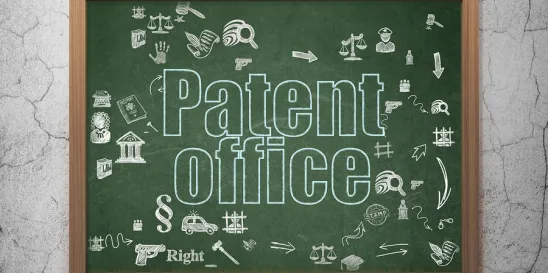Addressing the subpoena power of district courts to compel evidence for use in US Patent & Trademark Office (PTO) proceedings, the US Court of Appeals for the Fourth Circuit upheld a district court’s decision (albeit on alternative grounds), holding that district courts’ authority to issue subpoenas in support of PTO proceedings is limited by the PTO Rules of Procedure. Xactware Solutions, Inc. v. Buildxact Software Ltd., Case No. 22-1871 (4th Cir. March 13, 2024) (Gregory, Harris, Floyd, JJ.)
Buildxact, an Australian company, filed a trademark application at the PTO for BUILDXACT. Xactware opposed the BUILDXACT application at the Trademark Trial & Appeal Board and requested to depose three of Buildxact’s officers via video. When Buildxact objected indicating it would only allow written depositions (citing the PTO rules, which state that foreign depositions must be in writing unless the parties stipulate otherwise or the deposing party shows good cause), Xactware subpoenaed Buildxact through service on Buildxact’s default agent – the PTO Director – for an in-person deposition of a Buildxact corporate representative.
Buildxact filed a motion in the district court to quash the subpoena. The district court magistrate judge granted Buildxact’s motion, finding that Buildxact, which has no office, employees, or regular business in or near Virginia, did not have sufficient contacts to qualify as “being within” the district. Xactware moved for a review of the order, but the district court agreed with the magistrate judge’s ruling. Xactware appealed.
Pursuant to 35 U.S.C. § 23, the PTO may establish its own rules for depositions in cases before the Board. Additionally, 35 U.S.C. § 24 grants the “clerk of any United States court for the district wherein testimony is to be taken for use in any contested case in the Patent and Trademark Office” the power to “issue a subpoena for any witness residing or being within such district, commanding him to appear and testify before an officer in such district authorized to take depositions and affidavits.”
Xactware argued that Buildxact is “within” the district because it has an agent designated to receive service of process there (i.e., the PTO Director). The PTO argued that even if Buildxact were “within” the district, the subpoena must still be quashed as the deposition was improper under the PTO rules. The Fourth Circuit agreed, noting that it consequently need not address whether Buildxact was “within” the district or not.
The Fourth Circuit held that the district court lacked the authority to issue a subpoena compelling Buildxact’s deposition because the deposition being sought was prohibited by PTO rules and would not be admissible in any PTO proceeding. Looking at the legislative history, the Fourth Circuit noted that the district court’s subpoena power under § 24 is only available to the extent the courts are empowered to aid the PTO: “Section 24 assigns a supportive role to the district courts to ensure the smooth functioning of the [PTO] procedures.” Moreover, the explicit language of § 24 requires that a district court can only subpoena testimony “for use in any contested case,” meaning “any oral testimony taken in a foreign country that does not comply with [the PTO rules] is not ‘taken for use in’ a contested case.”
Xactware further argued that “for use in” should not be limited to PTO proceedings as parties may file a separate suit in the district court if they are dissatisfied with the Board’s decision. The Fourth Circuit rejected Xactware’s argument noting that any such suit in the district court is not an appeal but “a wholly separate suit, where new evidence is allowed” and “[t]he Federal Rules of Civil Procedure and Evidence – not Appeal Board internal rules – govern the proceedings.” The case at hand, however, was not such a suit as Xactware did not oppose the registration of Builxact’s mark at a district court.
Practice Note: This case serves as a reminder that the differences between the rules governing procedures at the Board as compared to the district courts can have strategic implications.




 />i
/>i
